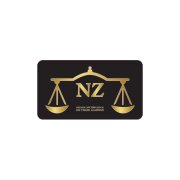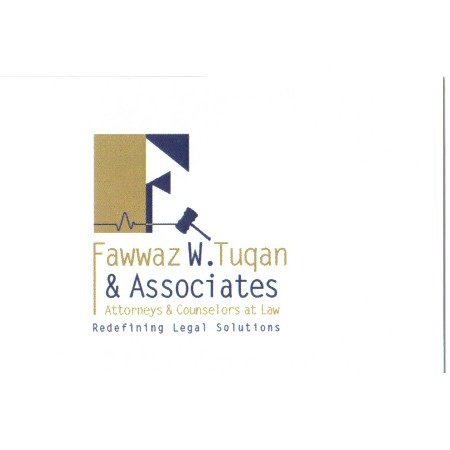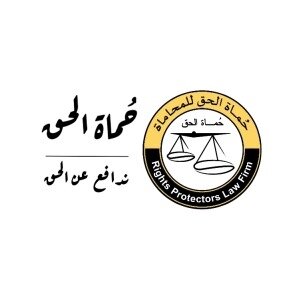Best Structured Finance Lawyers in Amman
Share your needs with us, get contacted by law firms.
Free. Takes 2 min.
List of the best lawyers in Amman, Hashemite Kingdom of Jordan

About Structured Finance Law in Amman, Hashemite Kingdom of Jordan
Structured finance refers to a set of complex financial instruments and transactions that are designed to help organizations obtain funding, mitigate risks, or manage cash flows in ways that traditional financial solutions cannot achieve. In Amman, the capital of the Hashemite Kingdom of Jordan, structured finance is an evolving field that plays a critical role in supporting both domestic and international investments. It often involves transactions such as securitizations, syndicated loans, asset-backed securities, project finance, and various derivative products. The legal environment in Amman supports structured finance while seeking to balance the needs of borrowers, investors, and financial institutions under Jordanian law.
Why You May Need a Lawyer
Structured finance transactions are highly regulated and involve multiple parties, detailed contracts, and complex risks. In Amman, individuals and organizations may need a lawyer for several reasons related to structured finance, including:
- Structuring and negotiating high-value financial transactions
- Drafting and reviewing financial agreements and documentation
- Ensuring compliance with Jordanian central bank regulations and securities laws
- Advising on tax implications and optimization
- Facilitating cross-border financing and foreign investment
- Resolving disputes between financiers, investors, or borrowers
- Navigating regulatory reporting and disclosure requirements
- Mitigating legal and credit risks associated with complex deals
Engaging a lawyer experienced in structured finance can help protect your interests, ensure regulatory compliance, and optimize the structure and terms of the transaction.
Local Laws Overview
The legal framework governing structured finance in Amman is shaped by a combination of national legislation, regulatory guidance, and international best practices. Key aspects include:
- The Central Bank of Jordan regulates banking and lending activities, including the approval and oversight of financial products used in structured finance
- The Companies Law and Securities Law govern the issuance of securities, asset-backed instruments, and the securitization process
- The Jordan Securities Commission monitors capital markets, ensuring investor protection and disclosure standards
- Sharia-compliant (Islamic finance) products are also available, regulated under specific frameworks catering to Islamic financial principles
- Foreign investment laws dictate how international entities can participate in structured finance, especially in projects involving infrastructure and energy
- Anti-money laundering and terrorism financing regulations impose strict due diligence and reporting requirements
Amman-based transactions may need to consider additional local requirements, such as approvals from relevant ministries or the registration of certain documents with government authorities.
Frequently Asked Questions
What is structured finance, and how is it used in Amman?
Structured finance is the use of complex financial products to manage risk or raise capital. In Amman, it is often used for large-scale projects, real estate developments, private equity, or infrastructure funding.
What types of structured finance transactions are common in Jordan?
Common transactions include project finance, securitization of loans or receivables, syndicated loans, and Islamic (Sharia-compliant) finance structures.
Do I need government approval for a structured finance transaction in Amman?
Some types of transactions, especially those involving securities or foreign investments, require approval or notification to the Central Bank of Jordan or other regulatory authorities.
How are Islamic finance structures used in Jordanian structured finance?
Islamic finance structures such as sukuk (Islamic bonds) and murabaha are tailored to comply with Sharia principles. They are increasingly popular for both public and private sector financing in Jordan.
What risks should I be aware of in structured finance deals?
Key risks include legal and regulatory compliance, credit risk, market risk, and the risk of disputes among parties. Legal advice is essential to mitigate these risks.
Can foreign investors participate in structured finance in Jordan?
Yes, but they must comply with foreign investment regulations, currency controls, and the requirements of the Central Bank of Jordan and other authorities.
What are the tax implications of structured finance transactions?
Tax treatment depends on the transaction structure, parties involved, and applicable treaties. A local lawyer can help identify tax liabilities or avenues for tax optimization.
How are disputes resolved in structured finance in Amman?
Disputes may be resolved through Jordanian courts or, if agreed, through alternative dispute resolution methods such as arbitration, which is common in international deals.
What documents are typically required for structured finance deals?
Essential documents include loan or facility agreements, security documents, offering memoranda, disclosure documents, and regulatory filings.
How can I ensure compliance with anti-money laundering laws?
Thorough due diligence, proper record-keeping, and reporting suspicious activities to the relevant authorities are required for compliance with AML regulations in Jordan.
Additional Resources
If you need more information about structured finance law and practice in Amman, consider the following resources:
- Central Bank of Jordan: Oversees banking and financial regulations
- Jordan Securities Commission: Regulates securities and capital markets
- Jordan Investment Commission: Information on foreign investment rules
- Jordan Bar Association: Directory of licensed legal practitioners
- Chambers of Commerce and Industry: Offer guidance and networking for business-related legal matters
Next Steps
If you are considering entering into a structured finance transaction or require advice on compliance, risk management, or dispute resolution in Amman, here are practical next steps:
- Gather all relevant documents related to your proposed transaction or issue
- Identify the main parties involved and clarify your objectives
- Contact a local lawyer who specializes in structured finance or banking law
- Request an initial consultation to discuss your needs and potential legal strategies
- Stay informed about local regulatory updates that may affect your transaction
Legal guidance is crucial for navigating the complexities of structured finance in Amman. Consulting an experienced lawyer can help you achieve your goals while minimizing risks and ensuring full compliance with Jordanian law.
Lawzana helps you find the best lawyers and law firms in Amman through a curated and pre-screened list of qualified legal professionals. Our platform offers rankings and detailed profiles of attorneys and law firms, allowing you to compare based on practice areas, including Structured Finance, experience, and client feedback.
Each profile includes a description of the firm's areas of practice, client reviews, team members and partners, year of establishment, spoken languages, office locations, contact information, social media presence, and any published articles or resources. Most firms on our platform speak English and are experienced in both local and international legal matters.
Get a quote from top-rated law firms in Amman, Hashemite Kingdom of Jordan — quickly, securely, and without unnecessary hassle.
Disclaimer:
The information provided on this page is for general informational purposes only and does not constitute legal advice. While we strive to ensure the accuracy and relevance of the content, legal information may change over time, and interpretations of the law can vary. You should always consult with a qualified legal professional for advice specific to your situation.
We disclaim all liability for actions taken or not taken based on the content of this page. If you believe any information is incorrect or outdated, please contact us, and we will review and update it where appropriate.















